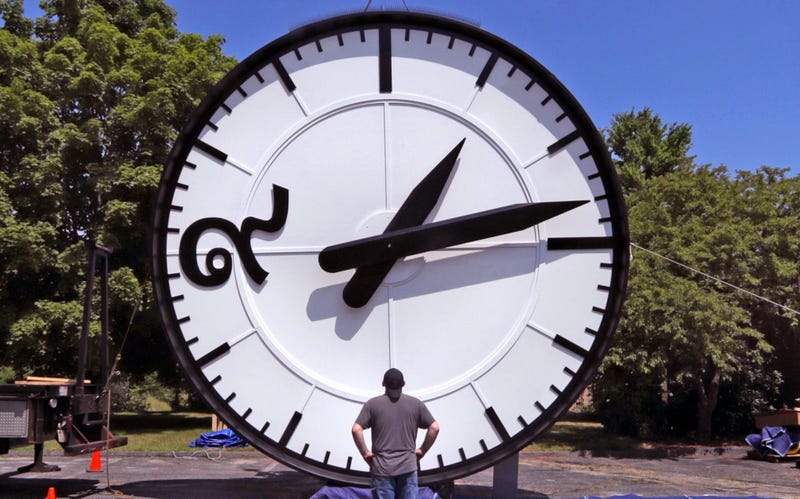
Office workers bemoan driving home in the dark. Night owls relish the chance to sleep in. As clocks tick toward the end of daylight saving time, many sleep scientists and circadian biologists are pushing for a permanent ban because of potential ill effects on human health.
Losing an hour of afternoon daylight sounds like a gloomy preview for the dark winter months, and at least one study found an increase in people seeking help for depression after turning the clocks back to standard time in November — in Scandinavia. Research shows the springtime start of daylight savings time may be more harmful, linking it with more car accidents, heart attacks in vulnerable people and other health problems that may persist throughout the time change.
About 1 in 3 U.S. adults sleep less than the recommended seven-plus hours nightly, and more than half of U.S. teens don't get the recommended eight-plus hours on weeknights. One U.S. study found that in the week following the spring switch to daylight saving time, teens slept about 2½ hours less than the previous week. Many people never catch up during the subsequent six months.
That increased risk associated with the time change is mainly in people already vulnerable because of existing heart disease, said Barry Franklin, director of preventive cardiology and cardiac rehabilitation at Beaumont Health hospital in Royal Oak, Michigan.
The research includes a German study published this year that found an increase in traffic fatalities in the week after the start of daylight saving time, but no such increase in the fall.
Ticking away at the molecular level, the biological clock is entrained — or set — by exposure to sunlight and darkness. It regulates bodily functions such as metabolism, blood pressure and hormones that promote sleep and alertness.
Disruptions to the body clock have been linked with obesity, depression, diabetes, heart problems and other conditions. Circadian biologists say these disruptions include tinkering with standard time by moving the clock ahead one hour in the spring.
Federal law allows states to remain on standard time year-round but only Hawaii and most of Arizona have chosen to. Proposed legislation in several states would have them join suit — or switch to year-round daylight saving time, which would require congressional approval.
Roenneberg and Northwestern's Zee are co-authors of a recent position statement advocating returning to standard time for good, written for the Society for Research on Biological Rhythms.
"If we want to improve human health, we should not fight against our body clock, and therefore we should abandon daylight saving time," the statement says.
___
Follow AP Medical Writer Lindsey Tanner at @LindseyTanner.
___
The Associated Press Health and Science Department receives support from the Howard Hughes Medical Institute's Department of Science Education. The AP is solely responsible for all content.
